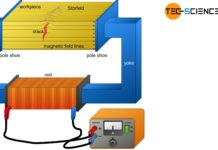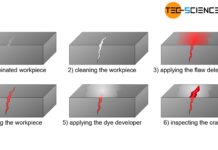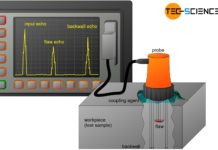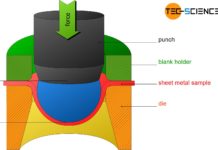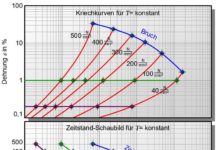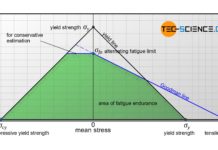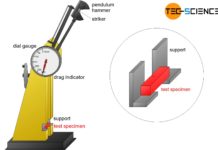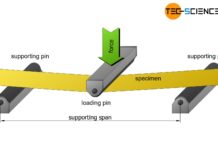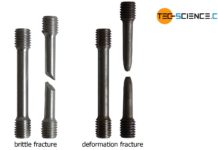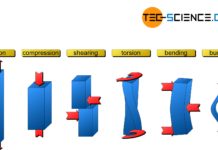Magnetic particle inspection (MPI)
With magnetic particle inspection (MPI), surface defects such as cracks of ferromagnetic components are made visible.
Introduction
Like the dye penetrant inspection, magnetic particle inspection is...
Dye penetrant inspection (DPI)
With Dye penetrant inspection, cracks on the surface of components can be made visible in a non-destructive manner.
The dye penetrant inspection (or liquid penetrate...
Ultrasonic testing (UT)
Ultrasonic testing uses sound waves to non-destructively inspect a component for flaws.
Introduction
Ultrasonic testing is a non-destructive testing technique because the workpieces or components to...
Cupping test
In the cupping test according to Erichsen, the deep drawing behavior of a metal sheet is examined.
Sheets for deep-drawing applications must have very good...
Stress-relaxation test
The relaxation strength indicates for a certain temperature to which value the stress falls at a given strain after a certain time!
In the creep...
Stress rupture test (creep rupture test)
The creep rupture test (stress rupture test) is used to measure the strength of materials that are subjected to constant stress at elevated temperatures.
Creep
If...
Fatigue test
The fatigue test provides information about the strength of a material under continuously changing stress (dynamic load).
https://www.youtube.com/watch?v=V2FItB2m4lk
Introduction
The intensity of the stress increases slowly but...
Fatigue limit diagram according to Haigh and Smith
Fatigue limit diagrams according to Haigh or Smith show the maximum yieldable stress amplitude as a function of the mean stress.
https://www.youtube.com/watch?v=pMUbK2DTJRs
Fatigue limit diagrams
Although the...
Charpy impact test
The Charpy impact test (Charpy V-notch test) is used to measure the toughness of materials under impact load at different temperatures!
https://www.youtube.com/watch?v=blECIlqda2Y
Introduction
The elongation at break...
Bending flexural test
In a bending flexural test, a standardized specimen is bent under uniaxial bending stress until plastic deformation or fracture occurs!
https://www.youtube.com/watch?v=B-caaAtTsDk
Test setup
In the bending flexural...
Compression test
In the compression test, a standardized specimen is loaded under compressive stress until it breaks or until a first crack appears.
The testing of materials...
Tensile test
The tensile test is used to determine the strength (yield point, ultimate tensile strength) and toughness (elongation at break) of a material!
https://www.youtube.com/watch?v=nOdcE2pJx2A
Setup
The tensile test...
Destructive material testing & non-destructive testing (NDT)
In destructive materials testing, the material is damaged; in non-destructive materials testing, the workpiece is left undamaged.
Materials such as steels generally have to withstand...

